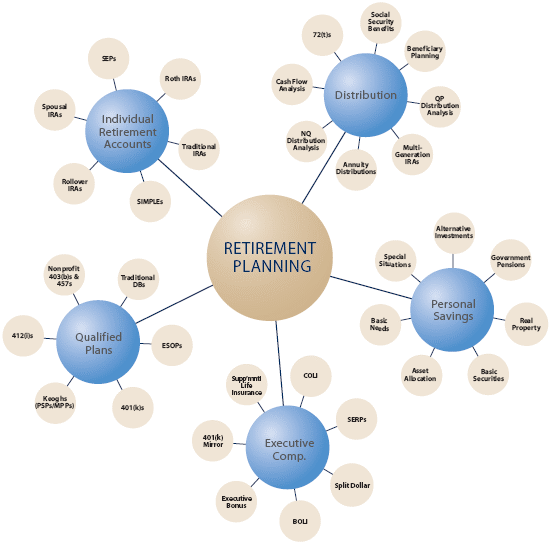Related Topics
Old Age
New topic 2019-04-09 16:04:33 description
Old Age, Re-designed
A grumpy analysis of future trends from a member of the Grumpy Generation.
Hospitals and their Future
New topic 2019-03-21 19:29:46 description
Insurance-Like Financial Retirement
There are other ways to support retirement, but most retirement plans before the public are based on the insurance model.
Retirement Communities
Prior to the Second World War, old-age homes were almshouses, slightly modernized. Since few people lived very long after they retired, the old-age home took care of a few stranded old folks unable to care for themselves. The places were depressing and sparse, with a characteristic odor of urine and poorly-ventilated kitchens. But when time spent in retirement lengthened to twenty or more years, a new dynamic had to be considered. The dingy old single rooms changed into multi-room apartments, the dining room went upscale, and the infirmary changed into a skilled nursing facility. The idea was, you could graduate to more specialized medical care when you needed it, and be visited by your friends in the community who would someday be in the nursing facility themselves. They were paying to keep it up, and they would raise a ruckus if the infirmary service began to look uninviting. Whether the community was paying for it collectively or the younger generation was supporting it, the Retirement Village provided a more civilized way to grow old and die.
 THe CCRC falls somewhere between a college dormitory and a resort hotel. 
|
People chose these places for a variety of reasons, depending in large part on what they could afford. Widows are often overwhelmed by maintaining a house, widowers are often overwhelmed by cooking. And retired couples are often simply tired of both chores, or sufficiently crippled or befuddled enough to look for a way to give those tasks to younger people. One system grew up, of acquiring a second home in a vacation area and then replacing the main house with an apartment in a retirement community. If you stay in the vacation home for six months and one day each year, certain combinations can lead to appreciable tax savings. Sometimes a married couple is in perfect health and uses a retirement community as a comfortable suburban apartment complex, "just going on living the way we always did". The idea in their mind is the folk wisdom that you need to get used to a place and develop a circle of friends there; to do that, you ought to be less than eighty years old. When that's a general idea, it can be self-defeating to join a group of friends with pooled meal tickets. Thirty friends, or fifteen couples, can each host a party for thirty, once or twice a month. Unfortunately, they are quickly sequestered and disliked by everyone else as they make the regular rounds of nightly parties; but this sort of thing happens in upscale places, the kind of retirement community where some apartments have servants' quarters, and nobody much cares what anything costs. For people in this circle, the most detestable thing about a retirement community is the pressure to have dinner at 5 PM. Early dinner is ordinarily the surest sign the place is managed primarily for the convenience of the employees, but it can also mean there is nothing else to do except watch prime-time television.

|
| Retirement Funds |
For most people, however, even having ample funds for retirement is constrained by the uncertainty of how long the retirement will have to be, how much must be held in reserve, even at age 100. The gallows humor continues to repeat some version of trying to plan a way to spend your last dollar on the last day of your life. It isn't just how long you will live, it is how. If you or your spouse become blind, or bedfast, or in chronic pain, your level of living is going to change and your daily expenses may rise dramatically. Even if you never gave such gloomy things a moment's thought, the experience of eating in the same dining room with several hundred elderly acquaintances soon teaches all the lessons of unexpected illnesses and weekly funerals. Some people cannot bear the idea of living in such a community, for precisely the reason that it becomes impossible to kid yourself. And one thing no one can kid himself about is the reality that you have to have one awful lot of money before you can ignore the need to watch your pennies. And it isn't just your spending money; it's also the lack of a basement, attic, and garage in which to expand or from which to draw reserves, or just to enjoy old books and mementos buried in dust.
Retirement communities seem to have developed independently in the Quaker suburbs of Philadelphia, and along the California coast. Except for the climate, there isn't much difference. More tennis in California, more trips to the theater on the East Coast. The early communities had a strong focus on finances, which assumed a lifetime retirement fund derived from selling the family home. The fancier the house, the more elaborate the apartment it would finance. As the duration of retirement grows progressively longer, roughly three years every decade, it is certain that the sale value of the average American family home will get progressively stretched to extend to the average age at death -- especially if you focus on the average age of the second of a couple to die, or become blind, or become bedfast.

|
| CCRC, Continuing Care Retirement Community) |
So, the patterns of financing are changing, at least experimentally. Some retirement communities (the term is are purely rental, partly room and board, extra charge for the nursing facility, or a la carte for all services. People who enter any sort of community are often planning to move to a different one after a period of time, either to adjust to their reduced physical capacities or changes of location of their families. Some of them actually say they plan to live luxuriously and then move into their children's houses when the money runs out, although it is usually hard to know how seriously to take such comments.
Obviously, what is needed is some sort of insurance mechanism to pool everybody's risks, but there is a fundamental problem. Insurance companies make a big profit on life insurance in two ways: either from clients who drop the policy before they cash it in or from premiums which underestimate the actual age of death compared with the average experience at the time the policy was taken out. But in the retirement case, essentially all policies mature at death and the duration for compounded investment is brief. So such insurance is either overpriced or unobtainable. The same underlying phenomenon affects Medicare and explains its impending insolvency. Those early retirement communities which based their charges on the assumption that Medicare would continue unchanged are repeatedly stranded when Congress cuts back on Medicare benefits. Someday, demographic trends will level off and insurance can be restored to practicality, but that time is certainly two or more decades away. Many states, including Pennsylvania, have passed laws that residents of retirement communities may not be evicted if they become impoverished, so the communities are forced to be strict about advance funding. Ultimately, the danger is that the community will be forced out of business, stranding the occupants. With so much time available to discuss such matters in a common dining hall, occupants of these facilities can become obsessed with the need to save for the future, and no one can be certain they are wrong about it.
Originally published: Wednesday, June 24, 2009; most-recently modified: Thursday, May 02, 2019